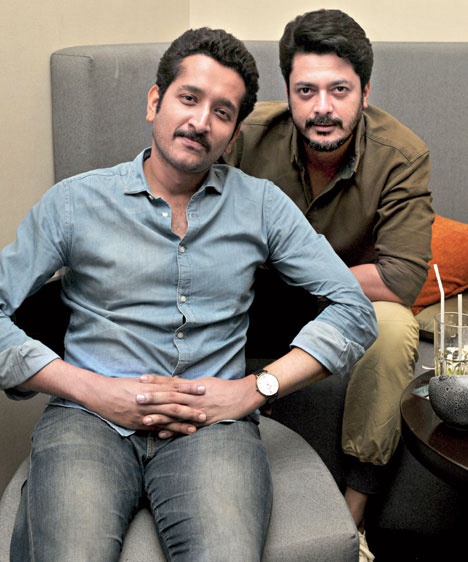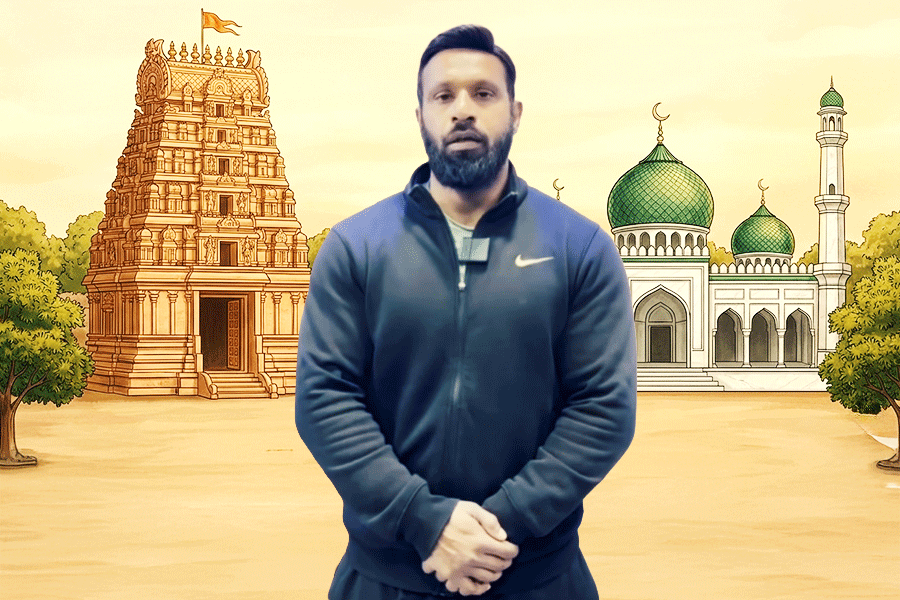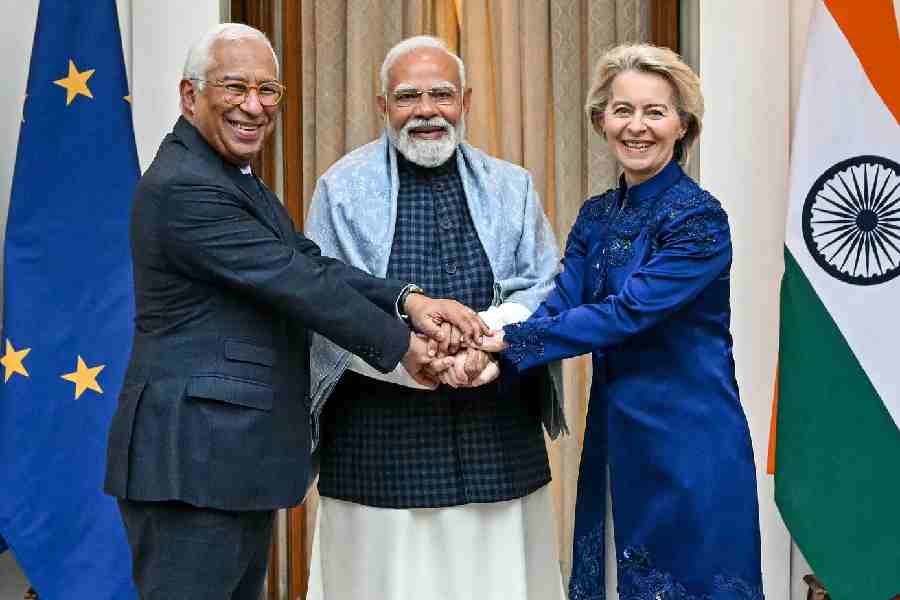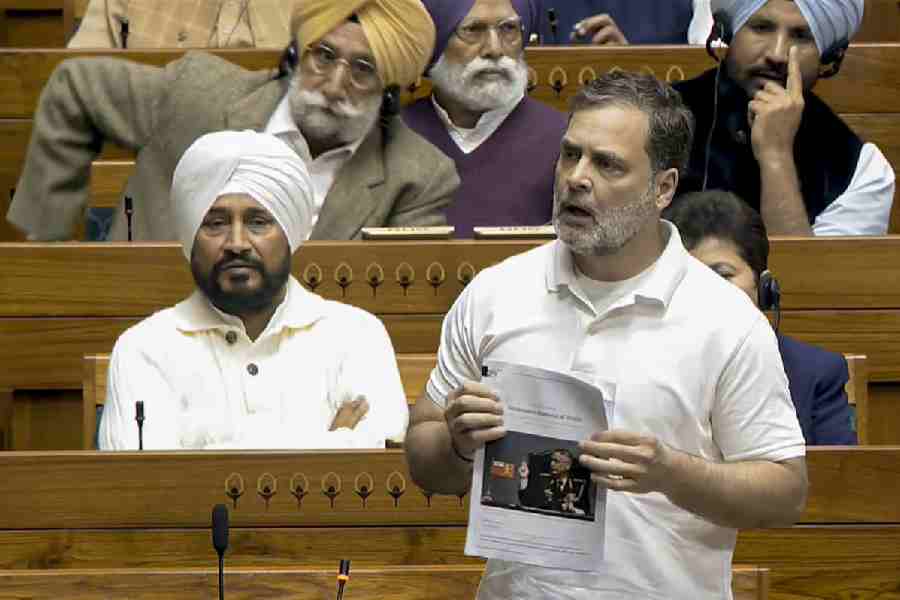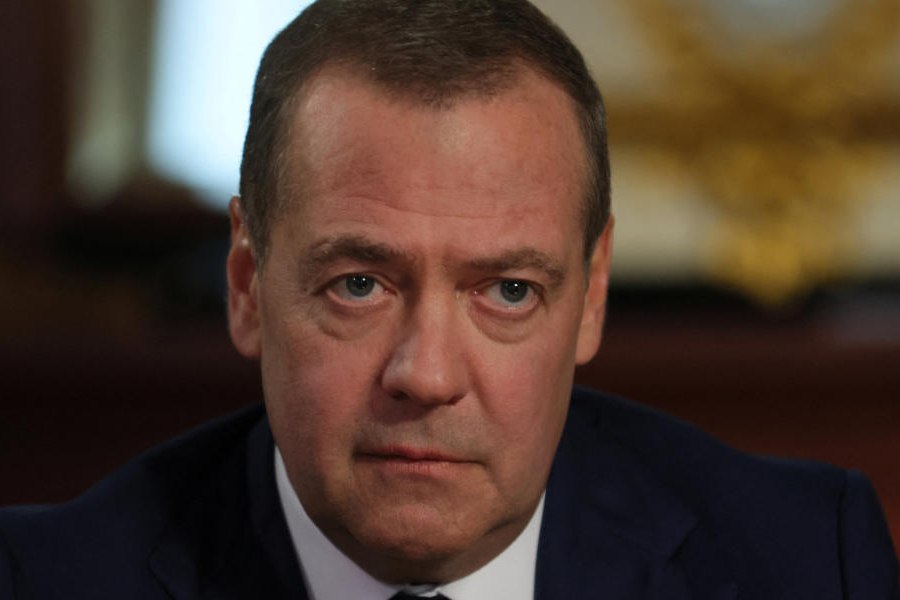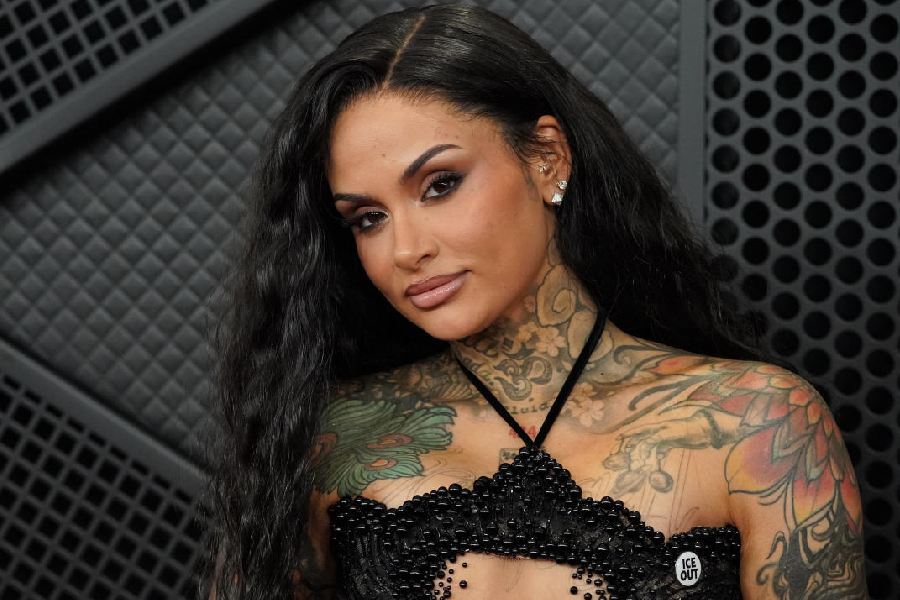
They were bandmates in the band Quinine in the early 2000s. They would jam together and go on tours. In Mainak Bhaumik’s Aamra, their first film together, Parambrata Chattopadhyay and Jisshu Sengupta dated the same girl — Parambrata was the ex, Jisshu the current BF. Colleagues and good friends now, Parambrata not only directs Jisshu in Shonar Pahar for the first time but also shares screen space with him. A t2 chat...
Jisshu, how would you rate Param as a director?
Jisshu: I loved him as a director. He is very chilled out, and he’s to the point. He knows exactly what he wants. He really encourages his actors; he listens to the actors.
Param: I have seen Jisshu evolving in the last eight-nine years like nobody else. He is the same person, but a different actor. I really like this mature Jisshu. He is so sporting. I like working with people who are sensitive and know their job really well. I knew he would be able to connect to this character (Jisshu plays Tanuja’s son, whose relationship with his mother turns bitter).
Jisshu: I didn’t take time to think about it. I connected to the character immediately. I could see my mother in some of the moments. I could visualise her. This film is relevant for both of us.
Param, how have you grown as a director over the last few years?
Param: Now I feel I understand the uniformity of tonality, or the cohesiveness of a certain subject, much better. There was a lack of cohesiveness in tone in Jiyo Kaka (2011), which I directed. The main thing is to understand human emotions. A certain kind of surety has come in. Suppose I have six shots in a scene... but when I see the actors performing well, I know that I don’t need that many shots. I am done with four.
Jisshu: While writing the script, he follows an emotional path.
Param: There is a scene in Shonar Pahar where we set up Jisshu’s angle first. He has a monologue. The scene happens at magic hour. And he carries on, and on. He starts crying and then I cry too.
Jisshu: And I couldn’t stop crying.
Param: And then we turned, and saw that Tanuja aunty was also crying.
Jisshu: The way she was looking at me made me cry.


Param, is it tough to direct a friend? Where is the thin line?
Param: As a director-actor, there is a line. As two actors of a similar age bracket there is a line, there is a professional sphere. We’ll respect each other and compete.
Jisshu: The ultimate goal is to make good cinema. Also, we understand each other’s space, where we are working.
Jisshu, when will you direct a film?
Jisshu: I am not ready yet. The content is there. It has to be written. My films will be emotionally driven.
Both of you are doing films in Bollywood as well. What kind of offers are coming your way? What’s your plan for Bollywood?
Param: Both of us are spending a little more time in Bombay these days.
Jisshu: You have to be seen there. Apart from us, there is Kharajda (Mukherjee). Kharajda is in huge demand in Bombay. And then there is Tota (Roy Choudhury), and Riddhi (Sen).
Param: I am reading a couple of scripts and being a little watchful.
Param, are you being extra careful post-Pari?
Param: A little. After you do a big Hindi film, you get a lot of B-grade offers… the mistake that I had made last time. Big directors approach you only when you are seen there. And there is so much work.
Jisshu: I am looking at characters that will stay with people, that they will remember. Just the way I select scripts here.
What’s your take on nurturing talent? Do you see actors who can be cast in central roles?
Param: We are trying to do that. But amader next generation thik jome uthte pareni.
Jisshu: Television is big, and XYZ are acting there (in serials). It has become easy there for some. Our kind of cinema has grown. But commercial films need to work.
How do you view the Bengali web space? The Bengali web series...
Param: I am noticing a trend… a lot of them are trying to infuse television sensibilities into the web series. They claim they are doing it based on certain surveys, but I am not sure. Netflix and Amazon are not connected to television. The Internet space needs to be kept independent.
Shonar Pahar is about the growing distance between a mother and son. It is also about a lost childhood. Both of you lost your parents at a young age...
Param: Grief of this kind doesn’t hit you in a day. It comes back in cycles. And when it comes back, it is there with you. It’s just enough to make you lie in bed the whole day. It is that bad.
How do you deal with it?
Param: By being with two-three people whom I understand, connect and love.
Jisshu: My father (Ujjal Sengupta) passed away when I was 22 or 23. I was really close to my mother (Mukta Sengupta). A question from my mother — “Ki korbo bol?” — made me a man from a boy in a day. I started taking charge. My mother was a big support. By then I had stopped doing television. I used to think... how will I earn money to run the house? Later I got married and we shifted to a different place. And then my mother passed away in 2008. We went through a lot. I still believe she is somewhere there around me, seeing what I am doing. There are days when I miss her a lot.
Param: It’s very hard to even try and express it in words. The difficulty I found in expressing the grief actually somehow translated into writing this film to some extent.
Did you take a break then?
Param: Just the next day. I dived into work, and that’s the only thing that kept me sane. I finished the shoot of Lorai, and then started shooting for Glamour. And then one day I was really sick. Had to cancel my shoot. I was bed-ridden. There was nothing happening in the house the whole day. I felt her absence and it was deafening.
Jisshu: The same happened with me. I took a break for a day and went back. You have no other option. I didn’t know how to react. I would cry at night.
The thing that is really painful and frustrating is… my parents are not with me now. If they were, they would have enjoyed their life. Now I can’t do anything to make them feel relaxed or happy.
Param: I was very close to my mother (Sunetra Ghatak). And with my father (Satinath Chattopadhyay), I would talk about music. I lost my father at 20. At that time I was barely mature.
When my mother passed away, I had to learn to deal with loneliness. I had to make the house feel like a home again. That was the main challenge actually. This is the house my mother and I lived in and we made it up together. Of course, my responsibilities increased… luckily I got a few people to help out at home at that point in time. They came into the house as domestic staff but they have become my family now. They are my family.
As a kid, I used to try and imagine a world where my parents aren’t there. I couldn’t think of it. And I reasoned that since our parents don’t live forever, that’s why we get married.
Which Bengali film can be remade with Parambrata and Jisshu in the lead?
Tell t2@abp.in

